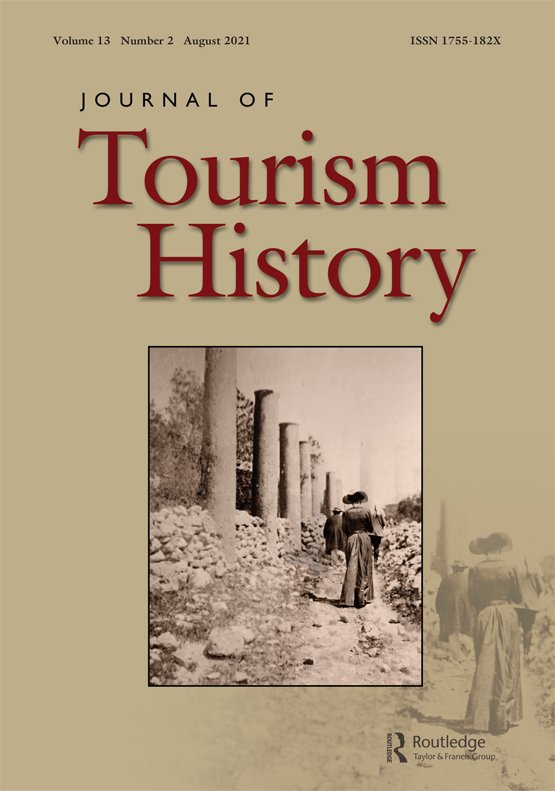
“The Politics of Memory, Tourism and Dictatorship: Revisiting Franco’s Valley of the Fallen” (A. Fuentes Vega, Journal of Tourism History 9(1): 70–91 [2017])
Looking into the role tourism played in the rehabilitation of the Franco regime after the Second World War, this paper explores how tourist imaginaries of the 1950s and 1960s dealt with the dictatorship question. Beyond the simplistic view of modern tourism as an apolitical phenomenon, I suggest a more contextualised reading that inserts tourist literature into the ideological evolution of post-war Europe and addresses those discourses that contributed to a positive image of Franco’s Spain. In addition to the global narrative of economic development, which was the decisive one, I will examine the specific case of the monument known as Valley of the Fallen. I argue that the conversion of this fascist landmark into a tourist site was made possible through a heritagisation process, where its architectonic attributes as well as its physical and metaphorical connections to the palace-monastery of El Escorial were key factors.